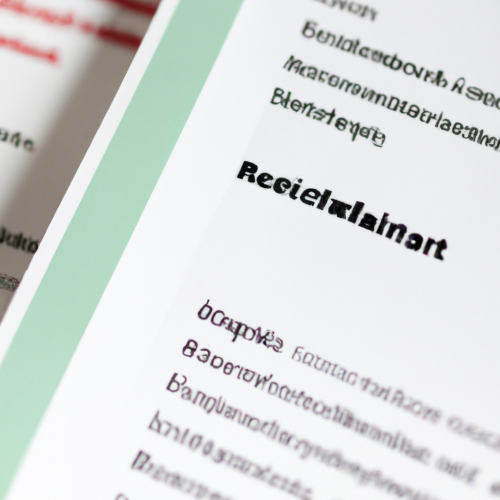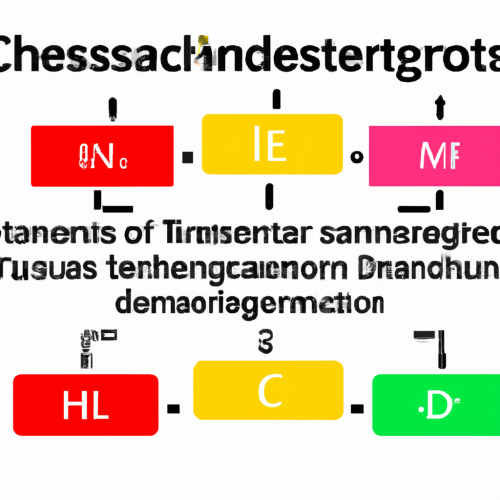Navigating German Work Culture: An Insightful Guide
Whether you are an expatriate planning to work in Germany or a student considering an internship in a German company, understanding the nuances of the country’s work culture is crucial. Known for its renowned engineering prowess, efficient systems, and strong work ethic, Germany offers a unique and highly organized professional environment. In this guide, we will delve into the intricacies of German work culture, offering valuable insights into its values, hierarchy, communication styles, and other essential aspects. By familiarizing yourself with these key elements, you will be well-equipped to navigate the German work landscape and foster successful professional relationships.
German Work Culture: An Overview
Germany is renowned for its strong work ethic and efficient work culture that values punctuality and productivity. Understanding the intricacies of German work culture is crucial for anyone hoping to work or do business in the country.
One key aspect of German work culture is the importance placed on punctuality. Germans are known for their precision and efficiency, and being late is considered disrespectful. It is expected that meetings and appointments start on time, so it is crucial to arrive a few minutes early to demonstrate respect for others’ time.
Another characteristic of German work culture is the emphasis on clear communication and directness. Germans value honesty and transparency, even if it means delivering feedback or criticism. It is common for Germans to express their opinions openly during discussions and expect others to do the same. This direct approach ensures that everyone is on the same page and helps to avoid misunderstandings.
Moreover, maintaining a professional appearance and demeanor is highly valued in German workplaces. Dressing appropriately, such as in business attire, is expected, especially in more traditional and formal industries. Germans tend to maintain a clear separation between their personal and professional lives, ensuring a highly focused work environment.
- Punctuality: Arrive a few minutes early to meetings and appointments, as lateness is deemed disrespectful in German work culture.
- Direct Communication: Germans appreciate honesty and openness in communication, even when it involves giving feedback or criticism.
- Professionalism: Maintain a professional appearance and demeanor, and dress appropriately for the workplace.

Understanding Hierarchical Structures in German Companies
In German companies, hierarchical structures play a crucial role in the organizational framework. These structures define the lines of authority, decision-making processes, and communication channels within the workplace. It is essential to comprehend these hierarchies to navigate the corporate landscape effectively.
Key Features of German Hierarchies:
- Vertical Organization: German companies generally have a vertical hierarchy, where decision-making power is concentrated at the top levels of management. Superiors hold authority, and subordinates follow instructions.
- Clear Chain of Command: Each role and position has a clearly defined place within the hierarchy, ensuring a structured flow of information and accountability.
- Respect for Titles and Rank: In Germany, job titles and ranks are highly respected. Addressing colleagues and superiors using their proper titles is customary and promotes professionalism.
Understanding Levels of Hierarchy:
- Top Management: At the highest level, you will find the executive board and managing directors. These individuals oversee strategic decision-making and overall company performance.
- Middle Management: Below the top level, middle management comprises department heads, team leaders, and supervisors who bridge the gap between top management and employees.
- Lower-level Employees: At the base of the hierarchy, employees carry out day-to-day tasks. They report to middle management and are responsible for executing assigned duties proficiently.
It is important to note that these hierarchical structures can vary between different companies. Some organizations may have flat hierarchies with fewer layers, while others may have more complex structures. However, understanding the basic principles of hierarchy in German companies will provide valuable insights into the decision-making processes and interdepartmental relations.
Work-Life Balance: Striving for Efficiency and Mindfulness
Striking a healthy balance between work and personal life is crucial for overall well-being and productivity. In today’s fast-paced world, it can be challenging to juggle professional responsibilities and personal commitments. Nevertheless, by striving for efficiency and practicing mindfulness, you can achieve a harmonious work-life balance that promotes both personal growth and professional success.
Efficiency:
- Set clear priorities: Determine your most important tasks and focus your energy on completing them efficiently. This helps you avoid feeling overwhelmed and allows you to stay on track.
- Manage your time effectively: Schedule your work and personal time meticulously. By planning your day and sticking to a routine, you can allocate time for both your professional and personal endeavors.
- Delegate when possible: Learn to delegate tasks effectively to colleagues or subordinates. Delegating not only empowers others but also frees up your time to concentrate on high-priority assignments.
Mindfulness:
- Practice self-care: Make self-care a priority by engaging in activities that promote relaxation and rejuvenation. Whether it’s meditation, exercise, or pursuing a hobby, taking care of yourself mentally and physically is essential.
- Set boundaries: Establish clear boundaries between work and personal life. Avoid checking emails or taking work-related calls during designated personal time. Respecting these boundaries helps maintain a healthier work-life balance.
- Be present in the moment: Embrace mindfulness techniques such as deep breathing or mindful listening to stay present and fully engaged in both work and personal interactions. This cultivates a sense of focus and allows you to appreciate each moment fully.
Striving for efficiency and cultivating mindfulness in our daily lives can do wonders for our overall well-being. By achieving a harmonious work-life balance, we enhance our productivity, creativity, and overall satisfaction in both professional and personal realms. Remember, finding the perfect equilibrium is an ongoing journey that requires conscious effort, but the rewards are undoubtedly worth it.
Punctuality, Precision, and Structure: Importance in the Workplace
In any professional setting, punctuality, precision, and structure play vital roles in maintaining an efficient and productive work environment. These three pillars form the foundation upon which successful organizations are built, enabling employees to meet deadlines, deliver quality work, and effectively collaborate with colleagues.
Punctuality is crucial in the workplace as it demonstrates respect for others’ time and a commitment to meeting deadlines. Arriving on time for meetings and completing tasks within set timeframes not only shows professionalism, but it also allows for smoother workflow and prevents unnecessary delays. Being punctual creates a positive impression and fosters a culture of reliability, which is essential for building trust and strong relationships with clients, colleagues, and superiors.
Precision goes hand in hand with punctuality. While being punctual focuses on meeting deadlines, precision emphasizes the accuracy and quality of work produced. Attention to detail is vital in various industries, such as finance, healthcare, and engineering, where precision can make the difference between success and failure. By meticulously reviewing and double-checking their work, employees minimize errors, enhance credibility, and ensure they deliver the best possible outcome, ultimately elevating the overall standard of the organization.
Structure holds everything together in the workplace. Establishing clear guidelines, processes, and workflows create an organized and structured work environment. Having structured systems helps employees prioritize tasks, reduces confusion, encourages effective communication, and enhances collaboration among team members. With a well-defined structure in place, employees can efficiently manage their time, delegate responsibilities, and work cohesively towards achieving shared goals, thus empowering the organization to thrive.
Communication and Directness: Managing Conflict in German Workplaces
In German workplaces, effective communication and directness play a crucial role in managing conflicts. Germans value clear and straightforward communication, making it imperative to address conflicts in a direct and honest manner. Here are some key points to consider when navigating conflict resolution in German work environments:
- Direct confrontation: Germans believe in discussing conflicts openly and addressing them head-on. It is important to express concerns, issues, or disagreements directly and in a respectful manner.
- Clarity and precision: German communication is characterized by being precise and to the point. When dealing with conflicts, it is essential to clearly express your feelings, thoughts, and concerns, while avoiding ambiguity or beating around the bush.
- Active listening: To defuse conflicts efficiently, it is crucial to actively listen to the other party involved. Pay attention to their perspective, concerns, and emotions, and strive for mutual understanding.
- Non-verbal cues: Non-verbal communication also holds great importance in German workplaces. Maintain eye contact, use appropriate gestures, and maintain a professional demeanor to enhance effective communication during conflict resolution.
In addition to these points, it is essential to note that Germans value professionalism and facts over emotions in conflict situations. It is crucial to remain focused on finding solutions rather than getting caught up in personal feelings or unnecessary emotional expressions. By prioritizing directness, clear communication, and active listening, conflicts can be effectively managed and resolved in German workplaces, fostering a more harmonious work environment.
Navigating Cultural Norms: Building Relationships and Networking in Germany
In order to successfully navigate cultural norms and build relationships and networks in Germany, it is important to understand and respect the unique customs and etiquette that are prominent in this country. Embracing these cultural norms will not only help you forge strong connections but also create a favorable impression on potential business partners and acquaintances.
1. Punctuality: Time management is highly regarded in German culture, so it is crucial to be punctual for all meetings and events. Arriving a few minutes early is considered the norm, and it demonstrates respect for the other person’s time. Remember to inform your hosts in advance if you anticipate any delays.
2. Formality: Germans tend to have a more formal approach in business settings, especially during initial meetings. Using formal titles and last names is the norm until you are invited to address someone on a first-name basis. When making introductions, it is advisable to use formal greetings such as “Guten Tag” (Good day) or “Bitte sehr” (You’re welcome).
3. Building trust through conversation: Germans appreciate engaging in meaningful conversations to establish trust before embarking on business collaborations. Small talk is not as common as in some other cultures, and Germans prefer straightforward and direct communication. Be prepared to discuss business matters in detail, providing concrete examples and data to support your arguments.
4. Networking and social events: Joining professional networks and attending social events can greatly enhance your networking opportunities in Germany. Business conferences, trade fairs, and industry-specific events are fantastic platforms to connect with like-minded individuals and potential partners. Remember to dress professionally and maintain excellent business etiquette during these instances.
By embracing these cultural norms and approaches, you will be well-equipped to build solid relationships and expand your professional network in Germany. Taking the time to understand and appreciate the customs of this country will undoubtedly contribute to your success in forging strong connections and creating meaningful business partnerships.
The Conclusion
In conclusion, navigating the German work culture can be both challenging and rewarding. By understanding the key principles and expectations such as punctuality, efficiency, and hierarchy, one can integrate successfully into the workplace. It is important to embrace the emphasis on work-life balance and taking vacations seriously, as well as the strong focus on teamwork and collaboration. Adapting to the direct and straightforward communication style, as well as the meticulous planning and attention to detail, will greatly contribute to one’s professional growth in a German work environment. Remember to be patient, observe, and learn from your colleagues, and constantly adapt to the ever-evolving landscape of German work culture. Ultimately, by respecting and embracing the values and norms of the German work culture, one will build strong professional relationships and pave the way for a successful career in Germany.





